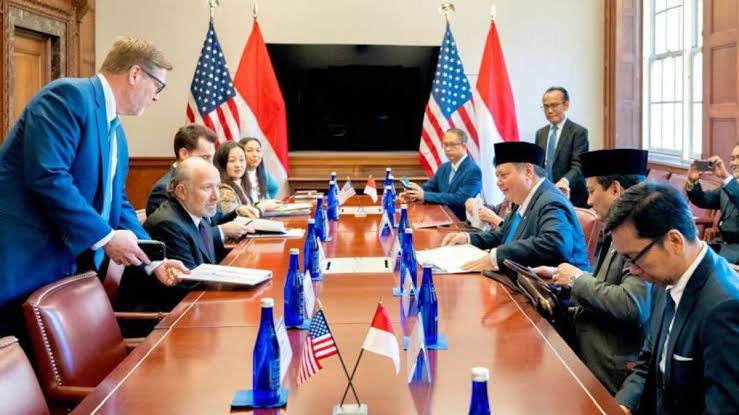In a dramatic turn in U.S.–Indonesia trade relations, Commerce Secretary Howard Lutnick confirmed today that U.S. goods exported to Indonesia will face no new tariffs, while Indonesian products shipped to the U.S. will be subjected to tariffs—potentially up to 32%—if ongoing talks fail. The announcement comes after intense negotiations following President Donald Trump’s threat last week to impose sweeping tariffs, which sent shockwaves through markets and diplomatic circles.
“No tariffs there, they pay tariffs here,” stated Secretary Lutnick in a nationally broadcast interview, summing up the U.S. position.
President Trump declared a “great deal” had been struck following direct talks with Indonesia’s President, but notably offered no specifics. Market observers remain cautious, as further details and final agreement terms are expected in the coming weeks.
Key Highlights:
U.S. Goods Spared: No new tariffs will be imposed on American exports to Indonesia, boosting U.S. exporters’ access.
Tariff Threat Remains for Indonesia: Unless the deal is finalized, Indonesia faces a delayed but looming 32% tariff on exports to the U.S., postponed for three weeks to allow for further negotiation.
High-Level Talks: Indonesian officials, including Coordinating Minister for Economic Affairs Airlangga Hartarto, flew to Washington for last-minute negotiations and secured both the tariff pause and several new business Memorandums of Understanding in agriculture and energy sectors.
Broader Trade Uncertainty: Trump’s reciprocal tariff doctrine is roiling global trade, with multiple countries negotiating frantically to avoid new duties. Details of the U.S.–Indonesia accord are expected, but pacts under this strategy have so far lacked full specifications.
Market Impact: Indonesian stocks saw a modest bounce, but global markets remain on edge as the U.S. continues its aggressive realignment of trade policy.
Source: CNBC, Reuters, Hindustan Times, Economic Times, Bloomberg.
